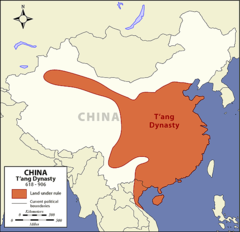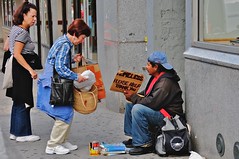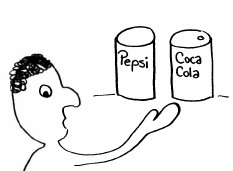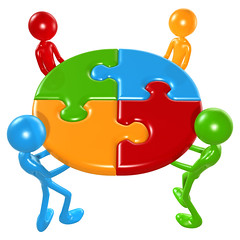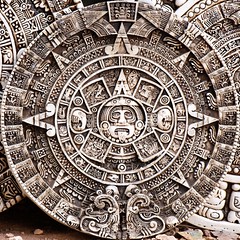| 6611356925 | Greek - Ahura Mazda | In Zoroastrianism, the good god who rules the world. | | 0 |
| 6611356926 | Persia - Alexander the Great | Alexander III of Macedon (356-323 B.C.E.), conqueror of the Persian Empire and part of northwest India. | | 1 |
| 6611356927 | India - Aryans | Indo-European pastoralists who moved into India about the time of the collapse of the Indus Valley civilization; their role in causing this collapse is still debated by historians. | | 2 |
| 6611356928 | Buddah - Ashoka | The most famous ruler of the Mauryan Empire (r. 268-232 B.C.E.), who converted to Buddhism and tried to rule peacefully and with tolerance. | | 3 |
| 6611356929 | Greece - Athenian democracy | A radical form of direct democracy in which much of the free male population of Athens had the franchise and officeholders were chosen by lot. | | 4 |
| 6611356930 | Roman - Caesar Augustus | The great-nephew and adopted son of Julius Caesar who emerged as sole ruler of the Roman state at the end of an extended period of civil war (r. 31 B.C.E.-14 C.E.). | | 5 |
| 6611356931 | Persia - Cyrus (the Great) | Founder of the Persian Empire (r. 557-530 B.C.E.); a ruler noted for his conquests, religious tolerance, and political moderation. | | 6 |
| 6611356932 | Persia - Darius I | Great king of Persia (r. 522-486 B.C.E.) following the upheavals after Cyrus's death; completed the establishment of the Persian Empire. | | 7 |
| 6611356933 | Persia - Greco-Persian Wars | Two major Persian invasions of Greece, in 490 B.C.E. and 480 B.C.E., in which the Persians were defeated on both land and sea. | | 8 |
| 6611356934 | India - Gupta Empire | An empire of India (320-550 C.E.). | | 9 |
| 6611356935 | China - Han dynasty | Dynasty that ruled China from 206 B.C.E. to 220 C.E., creating a durable state based on Shihuangdi's state-building achievement. | | 10 |
| 6611356936 | Greek - Hellenistic era | The period from 323 to 30 B.C.E. in which Greek culture spread widely in Eurasia in the kingdoms ruled by Alexander's political successors. | | 11 |
| 6611356937 | Greek - Herodotus | Greek historian known as the "father of history" (ca. 484-ca. 425 B.C.E.). His Histories enunciated the Greek view of a fundamental divide between East and West, culminating in the Greco-Persian Wars of 490-480 B.C.E. | | 12 |
| 6611356938 | Greek - hoplite | A heavily armed Greek infantryman. Over time, the ability to afford a hoplite panoply and to
fight for the city came to define Greek citizenship. | | 13 |
| 6611356939 | Greek - Ionia | The territory of Greek settlements on the coast of Anatolia; the main bone of contention between the Greeks and the Persian Empire. | | 14 |
| 6611356940 | China - Mandate of Heaven | The ideological underpinning of Chinese emperors, this was the belief that a ruler held authority by command of divine force as long as he ruled morally and benevolently. | | 15 |
| 6611356941 | Persian - Battle of Marathon | Athenian victory over a Persian invasion in 490 B.C.E. | | 16 |
| 6611356942 | India - Mauryan Empire | A major empire (322-185 B.C.E.) that encompassed most of India. | | 17 |
| 6611356943 | Greek - Olympic Games | Greek religious festival and athletic competition in honor of Zeus; founded in 776B.C.E. and celebrated every four years. | | 18 |
| 6611356944 | Roman - Patricians | Wealthy, privileged Romans who dominated early Roman society. | | 19 |
| 6611356945 | Roman - Pax Romana | The "Roman peace," a term typically used to denote the stability and prosperity of the early Roman Empire, especially in the first and second centuries C.E. | | 20 |
| 6611356946 | Athens - Peloponnesian War | Great war between Athens (and allies) and Sparta (and allies), lasting from 431 to 404 B.C.E. The conflict ended in the defeat of Athens and the closing of Athens's Golden Age. | | 21 |
| 6611356947 | Persian - Persepolis | The capital and greatest palace-city of the Persian Empire, destroyed by Alexander the Great. | | 22 |
| 6611356948 | Persian Empire | A major empire that expanded from the Iranian plateau to incorporate the Middle East from Egypt to India; flourished from around 550 to 330 B.C.E. | | 23 |
| 6611356949 | Roman - Plebians | Poorer, less privileged Romans who gradually won a role in Roman politics. | | 24 |
| 6611356950 | Roman - Punic Wars | Three major wars between Rome and Carthage in North Africa, fought between 264 and 146 B.C.E., that culminated in Roman victory and control of the western Mediterranean. | | 25 |
| 6611356951 | China - Qin Dynasty | A short-lived (221-206 B.C.E.) but highly influential Chinese dynasty that succeeded in reuniting China at the end of the Warring States period. | | 26 |
| 6611356952 | China - Qin Shihuangdi | Literally "first emperor" (r. 221-210 B.C.E.) forcibly
reunited China and established a strong and repressive state. | | 27 |
| 6611356953 | Athens - Solon | Athenian statesman and lawmaker (fl. 594-560 B.C.E.) whose reforms led the Athenians toward democracy. | | 28 |
| 6611356954 | China - Wudi | Han emperor (r. 141-86 B.C.E.) who began the Chinese civil service system by establishing an academy to train imperial bureaucrats. | | 29 |
| 6611356955 | China - Xiongnu | Nomadic peoples to the north of the Great Wall of China who were a frequent threat to the stability of the Chinese state. | | 30 |
| 6611356956 | China - Yellow Turban Rebellion | A major Chinese peasant revolt that began in 184 C.E. and helped cause the fall of the Han dynasty. | | 31 |
| 6611356957 | Greek - Angra Mainyu | In Zoroastrianism, the evil god, engaged in a cosmic struggle with Ahura Mazda. | | 32 |
| 6611356958 | Greek - Aristotle | A Greek polymath philosopher (384-322 B.C.E.); student of Plato and teacher of Alexander the Great. | | 33 |
| 6611356959 | Hindu - Atman | The human soul, which in classic Hindu belief seeks union with Brahman. | | 34 |
| 6611356960 | China - Ban Zhao | A major female Confucian author of Han dynasty China (45-116 C.E.) whose works give insight into the implication of Confucian thinking for women. | | 35 |
| 6611356961 | Hindu - Bhagavad Gita | A great Hindu epic text, part of the much larger Mahabharata, which affirms the performance of caste duties as a path to religious liberation. | | 36 |
| 6611356962 | Hindu - bhakti movement | An immensely popular development in Hinduism, advocating intense devotion toward a particular deity. | | 37 |
| 6611356963 | Hindu - Brahman | The "World Soul" or final reality in upanishadic Hindu belief. | | 38 |
| 6611356964 | India - Brahmins | The priestly caste of India. | | 39 |
| 6611356965 | India - Buddhism | The cultural/religious tradition first enunciated by Siddhartha Gautama | | 40 |
| 6611356966 | Chinese - Confucianism | The Chinese philosophy first enunciated by Confucius, advocating the moral example of superiors as the key element of social order. | | 41 |
| 6611356967 | China - Confucius | The founder of Confucianism (551-479 B.C.E.); an aristocrat of northern China who proved to be the greatest influence on Chinese culture in its history. | | 42 |
| 6611356968 | Roman - Constantine | Roman emperor (r. 306-337 C.E.) whose conversion to Christianity paved the way for the triumph of Christianity in Europe. | | 43 |
| 6611356969 | China - Daodejing | The central text of Daoism; translated as The Way and Its Power. | | 44 |
| 6611356970 | China - Daoism | A Chinese philosophy/popular religion that advocates simplicity and understanding of the world of nature, founded by the legendary figure Laozi. | | 45 |
| 6611356971 | China - Filial piety | The honoring of one's ancestors and parents, a key element of Confucianism. | | 46 |
| 6611356972 | Greece - Greek rationalism | A secularizing system of scientific and philosophic thought that developed in classical Greece in the period 600 to 300 B.C.E.; it emphasized the power of education and human reason to understand the world in nonreligious terms. | | 47 |
| 6611356973 | India - Hinduism | A word derived from outsiders to describe the vast diversity of indigenous Indian religious traditions. | | 48 |
| 6611356974 | Greece - Hippocrates | A very influential Greek medical theorist (ca. 460-ca. 370 B.C.E.); regarded as the father of medicine. | | 49 |
| 6611356975 | Judaism - Isiaih | One of the most important prophets of Judaism, whose teachings show the transformation
of the religion in favor of compassion and social justice (eighth century B.C.E.). | | 50 |
| 6611356976 | Christianity - Jesus of Nazareth | The prophet/god of Christianity(ca. 4 B.C.E.-ca. 30 C.E.). | | 51 |
| 6611356977 | Judaism - Yahweh | The monotheistic religion developed by the Hebrews, emphasizing a sole personal god (Yahweh) with concerns for social justice. | | 52 |
| 6611356978 | Hindu - Karma | In Hinduism, the determining factor of the level at which the individual is reincarnated, based
on purity of action and fulfillment of duty in the prior existence. | | 53 |
| 6611356979 | China - Laozi | A legendary Chinese philosopher of the sixth century B.C.E.; regarded as the founder of Daoism. | | 54 |
| 6611356980 | China - Legalism | A Chinese philosophy distinguished by an adherence to clear laws with vigorous punishments. | | 55 |
| 6611356981 | Budda - Mahayana | "Great Vehicle," the popular development of Buddhism in the early centuries of the Common Era, which gives a much greater role to supernatural beings and proved to be more popular than original (Theravada) Buddhism. | | 56 |
| 6611356982 | Hindu - Moksha | In Hindu belief, liberation from separate existence and union with Brahman. | | 57 |
| 6611356983 | Budda - Nirvana | The end goal of Buddhism, in which individual identity is "extinguished" into a state of serenity and great compassion. | | 58 |
| 6611356984 | Greek - Plato | A disciple of Socrates whose Dialogues convey the teachings of his master while going beyond them to express Plato's own philosophy; lived from 429 to 348 B.C.E. | | 59 |
| 6611356985 | Greek - Pythagoras | A major Greek philosopher (ca. 560-ca. 480 B.C.E.) who believed that an unchanging mathematical order underlies the apparent chaos of the world. | | 60 |
| 6611356986 | Christianity - Saint Paul | The first great popularizer of Christianity (10-65 C.E.). | | 61 |
| 6611356987 | India - Siddhartha Gautama (the Buddha) | The Indian prince turned ascetic (ca. 566-ca. 486 B.C.E.) who founded Buddhism. | | 62 |
| 6611356988 | Greek - Socrates | The first great Greek philosopher to turn rationalism toward questions of human existence (469-399 B.C.E.). | | 63 |
| 6611356989 | Roman - Theodosius | Roman emperor (r. 379-395 C.E.) who made Christianity the official religion of the
Roman state, banning all polytheistic rituals. | | 64 |
| 6611356990 | Buddah - Theravada | "The Teaching of the Elders," the early form of Buddhism according to which the Buddha as a wise teacher but not divine and which emphasizes practices rather than beliefs. | | 65 |
| 6611356991 | Indian - Upanishads | Indian mystical and philosophical works, written between 800 and 400 B.C.E. | | 66 |
| 6611356992 | India - Vedas | The earliest religious texts of India, a collection of ancient poems, hymns, and rituals that were transmitted orally before being written down ca. 600 B.C.E. | | 67 |
| 6611356993 | China - Warring States Period | Period in China from 403 to 221 B.C.E. that was typified by disorder and political chaos. | | 68 |
| 6611356994 | China - Yin and Yang | Expression of the Chinese belief in the unity of opposites. | | 69 |
| 6611356995 | Persia - Zarathustra | A Persian prophet, traditionally dated to the sixth or seventh century B.C.E. (but perhaps much older), who founded Zoroastrianism. | | 70 |
| 6611356996 | Persia - Zoroastrianism | Persian monotheistic religion founded by the prophet Zarathustra. | | 71 |
| 6611356997 | India - Caste as varna and jati | The system of social organization in India that has evolved over millennia; it is based on an original division of the populace into four inherited classes, with the addition of thousands of social distinctions based on occupation, which became the main cell of social life in India. | | 72 |
| 6611356998 | India - Dharma | In Indian belief, performance of the duties appropriate to an individual's caste; good performance will lead to rebirth in a higher caste. | | 73 |
| 6611356999 | Greek - helots | The dependent, semi-enslaved class of ancient Sparta whose social discontent prompted the militarization of Spartan society. | | 74 |
| 6611357000 | India - karma | In Indian belief, the force generated by one's behavior in a previous life that decides the level at which an individual will be reborn. | | 75 |
| 6611357001 | India - Ksatriya | The Indian social class of warriors and rulers. | | 76 |
| 6611357002 | Roman - latifundia | Huge estates operated by slave labor that flourished in parts of the Roman Empire | | 77 |
| 6611357003 | Greece - Pericles | A prominent and influential statesman of ancient Athens (ca. 495-429 B.C.E.); presided over Athens's Golden Age. | | 78 |
| 6611357004 | India - "ritual purity" in Indian social practice | In India, the idea that members of higher castes must adhere to strict regulations limiting or forbidding their contact with objects and members of lower castes to preserve their own caste standing and their relationship with the gods. | | 79 |
| 6611357005 | China - scholar-gentry class | A term used to describe members of China's landowning families, reflecting their wealth from the land and the privilege that they derived as government officials. | | 80 |
| 6611357006 | India - Sudra | The lowest Indian social class of varna; regarded as servants of their social betters; eventually included peasant farmers | | 81 |
| 6611357007 | China - the "three obediences" | In Chinese Confucian thought, the notion that a woman is permanently subordinate to male control: first that of her father, then of her husband, and finally of her son. | | 82 |
| 6611357008 | India - Untouchables | An Indian social class that emerged below the Sudras and whose members performed the most unclean and polluting work. | | 83 |
| 6611357009 | India - Vaisya | The Indian social class that was originally defined as farmers but eventually comprised merchants. | | 84 |
| 6611357010 | China - Wang Mang | A Han court official who usurped the throne and ruled from 8 C.E. to 23 C.E.; noted for his reform movement that included the breakup of large estates. | | 85 |
| 6611357011 | China - Empress Wu | The only female "emperor" in Chinese history (r. 690-705 C.E.); patronized scholarship, worked to elevate the position of women, and provoked a backlash of Confucian misogynist invective. | | 86 |
| 6611357012 | North America - Ancestral Pueblo | Formerly known as the Anasazi, this people established a mixed agricultural and gathering/hunting society in the southwestern part of North America. | | 87 |
| 6611357013 | Africa - Axum | Classical-era kingdom of East Africa, in present-day Eritrea and northern Ethiopia; flourished
from 100 to 600 C.E. | | 88 |
| 6611357014 | Africa - Bantu expansion | Gradual migration of peoples from their homeland in what is now southern Nigeria and the Cameroons into most of eastern and southern Africa, a process that began around 3000 B.C.E. and continued for several millennia. The agricultural techniques and ironworking
technology of thesefarmers gave them an advantage over the gathering and hunting peoples they encountered. | | 89 |
| 6611357015 | Africa - Batwa | Forest-dwelling people of Central Africa who adopted some of the ways of their Bantu neighbors while retaining distinctive features of their own culture; also known as "Pygmies." | | 90 |
| 6611357016 | America - Cahokia | The dominant center of an important Mississippi valley mound-building culture, located near present-day St. Louis, Missouri; flourished from about 900 to 1250 C.E. | | 91 |
| 6611357017 | America - Chaco Phenomenon | Name given to a major process of settlement and societal organization that occurred in the period 860-1130 C.E. among the peoples of Chaco canyon, in what is now northwestern New Mexico; the society formed is notable for its settlement in large pueblos and for the building of hundreds of miles of roads (the purpose of which is not known). | | 92 |
| 6611357018 | Peru - Chavin | Andean town that was the center of a large Peruvian religious movement from around 900 to 200 B.C.E. | | 93 |
| 6611357019 | Egypt - Coptic Christianity | The Egyptian variety of Christianity, distinctive in its belief that Christ has only a single, divine nature. | | 94 |
| 6611357020 | America - Hopewell Culture | Named from its most important site (in present-day Ohio), this is the most elaborate and widespread of the North American mound building cultures; flourished from 200 B.C.E. to 400 C.E. | | 95 |
| 6611357021 | Africa - Jenne-jeno | Largest and most fully studied of the cities of the Niger Valley civilization | | 96 |
| 6611357022 | Mesoamerica - Maya | The major classical civilization of Mesoamerica; flourished from 250 to 900 C.E. | | 97 |
| 6611357023 | Peru - Moche | An important regional civilization of Peru, governed by warrior-priests; flourished from around 100 to 800 C.E. | | 98 |
| 6611357024 | America - Mound Builders | Members of any of a number of cultures that developed east of the Mississippi River in what is now the United States and that are distinguished by their large earthen mounds, built during the period 2000 B.C.E.-1250 C.E. | | 99 |
| 6611357025 | Peru - Nazca | A civilization of southern coastal Peru, the Nazca became famous for their underground irrigation channels and their gigantic and mysterious lines in the desert in the form of monkeys, birds, spiders, and other designs. | | 100 |
| 6611357026 | ? Niger Valley Civilization | Distinctive city-based civilization that flourished from about 300 B.C.E. to about 900 C.E. in the floodplain of the middle Niger and that included major cities like Jenne-jeno; the Niger Valley civilization is particularly noteworthy for its apparent lack of centralized state structures, having been organized instead in clusters of economically specialized settlements. | | 101 |
| 6611357027 | ? Pueblo | "Great house" of the Ancestral Pueblo people; a large, apartment building-like structure that could house hundreds of people. | | 102 |
| 6611357028 | ? Semi-sedentary | Term frequently used to describe the peoples of the eastern woodlands of the United States, Central America, the Amazon basin, and the Caribbean islands who combined partial reliance on agriculture with gathering and hunting. | | 103 |
| 6611357029 | Columbia - Teotihuacán | The largest city of pre-Columbian America, with a population between 100,000 and 200,000; seemingly built to a plan in the Valley of Mexico, flourished between 300 and 600 C.E., during which time it governed or influenced much of the surrounding region. The name is an Aztec term meaning "city of the gods." | | 104 |
| 6611357030 | Maya City - Tikal | Major Maya city, with a population of perhaps 50,000 people. | | 105 |
| 6611357031 | ? Golden Age | A combination of wealth and a time of relative peace often leads to cultural achievement in math, science, arts, and technology. | | 106 |
| 6611357032 | China - Pax Sinica | "Chinese peace"; under the Han Dynasty, China experienced 400 years of prosperity and stability | | 107 |












